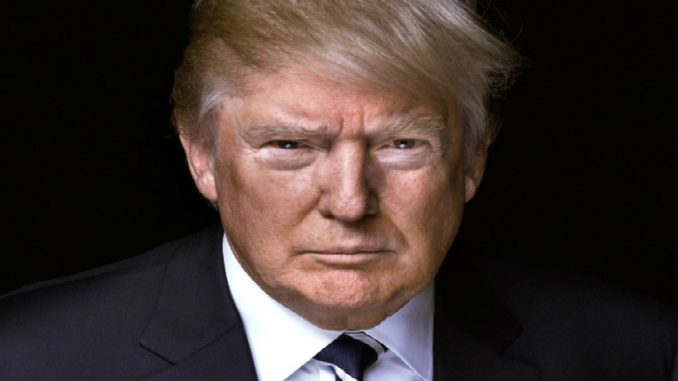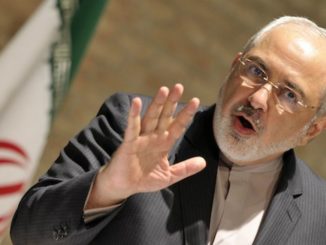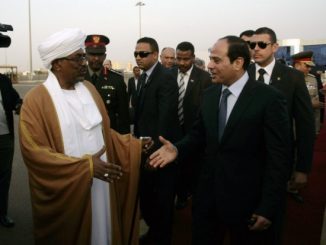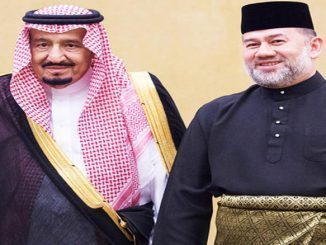
The new US president Donald Trump said he is putting Iran on notice, in a new chapter of his remarks against the Islamic republic the opens the door for speculation about the consequences and results of such a campaign.
Barack Obama, The former US leader, was behind the historic Iran nuclear deal with P5+1 powers, agreed upon last year, which saw Tehran agree to amend its nuclear output in order to lift all nuclear-related economic sanctions, freeing up tens of billions of dollars in oil revenue and frozen assets.
After lifting the sanctions, Iranian president Hassan Rouhani visited Europe and made deals that worth billions of dollars. European companies started looking for investment opportunities in the growing Iranian market.
However, Trump’s election might change the whole game and threaten the development that was built in the past months.
Trump has said during his election campaign that the deal as “disastrous” and said it would be his “number one priority” to dismantle it.
These threats became clearer after Trump’s inauguration, as he signed an executive order temporarily barring thousands from seven countries in the Middle East and Africa, including Iran, from obtaining visas to travel to the United States.
In a clear challenge, a ballistic missile test was conducted by Iran on Sunday.
A U.S. defense official said that the missile test ended with a “failed” re-entry into the earth’s atmosphere, and later German sources said that the test included nuclear-capable missiles that are considered a breach for the nuclear deal
“Iran is on notice”
Trump’s national security adviser, Michael Flynn, arrived unannounced in the White House press room Wednesday and announced that “we’re officially putting Iran on notice”
Flynn blasted Iran for threatening American allies and “malign actions — including weapons transfers, support for terrorism, and other violations of international norms.”
He also linked Iran directly to missile attacks by Yemeni Shiite rebels known as Houthis on Saudi and Emirati ships. Saudi Arabia and the United Arab Emirates are leading a coalition supporting Yemen’s internationally recognized government against the Iranian-backed rebels.
What appeared to trigger the notice being served, however, was Iran’s Sunday launch of a medium-range ballistic missile, and reports later said that this test included ones that can carry nuclear heads.
Flynn insisted that the missile test was “in defiance of UN Security Council Resolution 2231”, which calls on Iran not to test missiles capable of delivering a nuclear weapon.
“Iran has been formally PUT ON NOTICE for firing a ballistic missile. Should have been thankful for the terrible deal the US made with them!” Trump tweets repeating what Flynn previously announced.
Later on Thursday, responding to a question about whether he would consider military options to respond to Iran, Trump told reporters “nothing is off the table”.
Flynn did not say whether the US would take action beyond a verbal warning, and three senior administration officials, speaking on background, said Wednesday that they are still in the early stages of determining what action the US should take in response.
“We are considering a whole range of options. We’re in a deliberative process,” one of the officials said.
The White House said Iran’s action would not go “unresponded to”.
“We will have further updates for you on those additional actions, but clearly (national security adviser Michael Flynn) warned to make sure that Iran understood that they are on notice that this is not going unresponded to,” said Sean Spicer, the White House spokesman.
Provocative claims
Iran has rejected a warning from US President Donald Trump’s administration over its latest missile test as unfounded.
Bahram Ghasemi, the Iranian foreign ministry spokesman, was quoted as saying on Thursday by state news agency IRNA that the claims were “baseless, repetitive and provocative”.
“Instead of thanking Iran for its continued fight against terrorism … the American government is practically helping the terrorists by claims about Iran that are baseless, repetitive and provocative,” he said.
Also on Thursday, a top adviser to Supreme Leader Ali Khamenei said Iran would not yield to “useless” US threats from “an inexperienced person” over its ballistic missile program.
“This is not the first time that an inexperienced person has threatened Iran … the American government will understand that threatening Iran is useless,” Ali Akbar Velayati said, without identifying any US official specifically in his comments.
“Iran does not need permission from any country to defend itself,” he was quoted as saying by the semi-official Fars news agency.
“Iran’s great missile power is one of the world’s unmatched deterrent powers today,” Gen. Hossein Salami was quoted as saying by the semi-official Tasnim news agency Thursday
What can Trump do?
Trump can another one of his campaign promises and “tear up” the Iranian nuclear deal. The problem is that this is not simply a pact between the US and Iran, but rather between Iran and the five permanent members of the UN Security Council (Britain, France, Russia, China, and the US) plus Germany. None of these other countries seems prepared right now to rush with the US into such an impetuous and ill-conceived action.
The other possible action the US could take would be to “snap back” a broad array of economic sanctions against Iran, which were removed according to the nuclear deal, and give more support for Iran’s regional rivals.
Among the biggest of those adversaries are Saudi Arabia, Israel and the UAE, whose foreign minister has voiced support for Trump’s decision to temporarily block entry to citizens of Iran and six other Muslim-majority countries.
The Saudis and Emiratis would welcome deeper American involvement for the war in Yemen, which they view in large part as a proxy fight against Iran. The U.S. has provided logistical support to the Saudi-led coalition since it intervened in March 2015, but in December the Obama administration halted some arms sales to the Saudis over concerns about civilian deaths.
Washington could implement further unilateral sanctions against Iran. Nuclear-related sanctions were removed last year after Iran agreed to a deal with world powers limiting its nuclear activities, but Washington has maintained other sanctions related to support for terrorism and other actions as far back as the 1979 Islamic Revolution.
The third option is a direct military action which may be the last step.
U.S. officials have not confirmed whether military action is on the table. “It’s far too early in the game for us to see any kind of military moves,” an analyst said.
Still, U.S. forces are already in place should Trump decide to launch at least a limited strike.
Guided-missile destroyers and other U.S. warships attached to the Navy’s 5th Fleet routinely patrol the Persian Gulf and occasionally have unnervingly close encounters with Iranian Revolutionary Guard vessels. Just this week, 17 ships from the U.S., Australia, Britain and France took part in joint naval exercises in the Gulf.
At least one U.S. aircraft carrier is usually in the region, although not right now. The nearest one was last reported to be in the Western Pacific.
The U.S. does have warplanes capable of carrying out airstrikes stationed elsewhere in the region, including Qatar and the UAE. They have been actively targeting positions of the Islamic State group in Iraq and Syria.
Iran’s response and the long-awaited chance
Iran is likely to calibrate its responses based on how the U.S. acts.
Tougher U.S. sanctions could convince Tehran to start reinterpreting the terms of the nuclear deal, said Mohammad Marandi, a political analyst in Tehran.
“The Iranians will reciprocate,” he said. “The more the Americans disregard the agreement … the more the Iranians will find new ways of interpreting the text that do not work to the benefit of the United States.”
More direct action could include an uptick in harassment of U.S. warships by Revolutionary Guard speedboats in the Gulf, or new cyberattacks like one that crippled the network of Saudi Arabia’s state oil company in 2012.
Iran also could boost support for regional allies such as Lebanon’s Hezbollah or the Houthis in Yemen.
In addition, this war can be the political victory that the hardliners have sought since te nuclear deal
Iranian Supreme Leader Ali Khamenei regularly criticizes the United States and the deal, saying it should not be trusted and it wasn’t doing its part of the deal.
Khamenei has already promised to “set fire” to the nuclear deal if the West violates it. and has repeatedly complained it has not received benefits promised.
Trump’s war on Iran would just prove him right and will strengthen his hold on the Iranians’ minds, who will just see the west as the devil their leader always spoke about.



